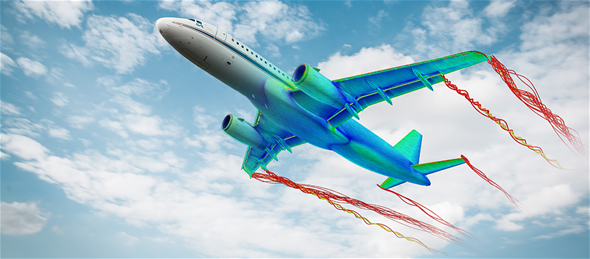
This course provides a comprehensive overview of aircraft airframe construction, design principles, materials, and maintenance practices. Students will explore the fundamental concepts of structural integrity, aerodynamics, and load distribution as they relate to airframe design. Through lectures, discussions, and practical exercises, students will gain a thorough understanding of the various components of an airframe, including wings, fuselage, empennage, and control surfaces. The course will also cover airframe inspection, repair techniques, and relevant safety regulations. This course is essential for aspiring aircraft maintenance technicians, engineers, and aviation professionals seeking a solid foundation in airframe technology.
- Teacher: Kelvin Maiya
- Teacher: Odel Trainer

This course provides a comprehensive exploration of gas turbine engines, the powerplants that revolutionized aviation and various industrial applications. Students will delve into the fundamental principles of thermodynamics, fluid mechanics, and combustion that govern the operation of these complex machines.
The course will cover the thermodynamic cycles (Brayton cycle), component design and function (compressors, combustors, turbines), performance characteristics, and operational aspects of gas turbine engines. Students will gain an understanding of the various types of gas turbine engines, including turbojets, turbofans, turboprops, and turboshafts, and their specific applications.
Furthermore, the course will address the challenges and advancements in gas turbine technology, including materials science, emissions reduction, and efficiency improvements. Through lectures, discussions, and practical examples, students will develop a strong foundation in the theory and practice of gas turbine engineering, preparing them for careers in aviation, power generation, and related industries.
- Teacher: Kelvin Maiya

Welcome to the fascinating world of aerodynamics! This course will introduce you to the fundamental principles that govern the motion of air and its interaction with objects, particularly aircraft. Aerodynamics is a crucial field in aerospace engineering, but its principles extend to many other areas, from automotive design to wind energy.
By the end of this course, you will have a strong understanding of the fundamental principles of aerodynamics and their importance in various fields.
Let's begin our journey into the world of flight!
- Teacher: key em
- Teacher: Kelvin Maiya
- Teacher: Odel Trainer

Welcome to the Airfield Safety course! This course is designed to provide you with a comprehensive understanding of the critical safety practices and procedures necessary for working in and around an airfield environment.
*Why is Airfield Safety Important?*
Airfields are dynamic and potentially hazardous environments. The constant movement of aircraft, vehicles, and personnel creates unique safety challenges.
By the end of this course, you will be equipped with the knowledge and skills to contribute to a safe and efficient airfield operation. Let's work together to create a safe environment for everyone!
- Teacher: Kelvin Maiya